Israeli scientists who developed a method to produce a tap water-based, pathogen-killing disinfectant have partnered with a local industrial automation solutions company to roll out a “sanitation tunnel” that would allow for a safer entrance to public places.
Amid the COVID-19 global health crisis, spaces such as shops, gyms, markets, malls, and office buildings have been allowed to reopen under strict guidelines to make sure patrons and employees wear masks and have their temperatures taken before entering. The sanitation tunnel incorporates the disinfectant solution and adds an extra layer of protection by spraying it on those seeking to enter a space, neutralizing potential droplets on skin, clothing, and materials such as handbags, the scientists say.
The process is automatic and the tunnel works with sensors to pick up when a person is passing through, spraying the solution from different angles through a number of mist nozzles built in the machine.
The tunnel, developed by Karmiel-based company RD Pack, is being piloted at the VIP entrance to Bloomfield Stadium in Tel Aviv, the home court of the three local soccer clubs, Maccabi Tel Aviv, Hapoel Tel Aviv, and Bnei Yehuda Tel Aviv). Israel’s soccer stadiums were allowed to reopen this past weekend after months of lockdown to host the rest of the soccer season which ends in July. The stadiums must abide by strict hygiene rules and limit spectators to close family and friends of the players, as well as members of the press, according to the Hebrew media.
The machine will be housed at the stadium for the next month.
The disinfectant solution itself was developed and patented by Bar-Ilan University scientists Dr. Eran Avraham, Dr. Izaak Cohen, and Prof. Doron Aurbach, head of the electrochemistry group at the Department of Chemistry and Institute of Nanotechnology and Advanced Materials. The material can kill bacteria and viruses, including coronaviruses, and has been proven to do so in external laboratory testing against the herpes simplex virus, a skin infection with no known cure, and the human coronavirus OC43, one out of seven known coronaviruses that infect humans, and the type that causes the common cold.
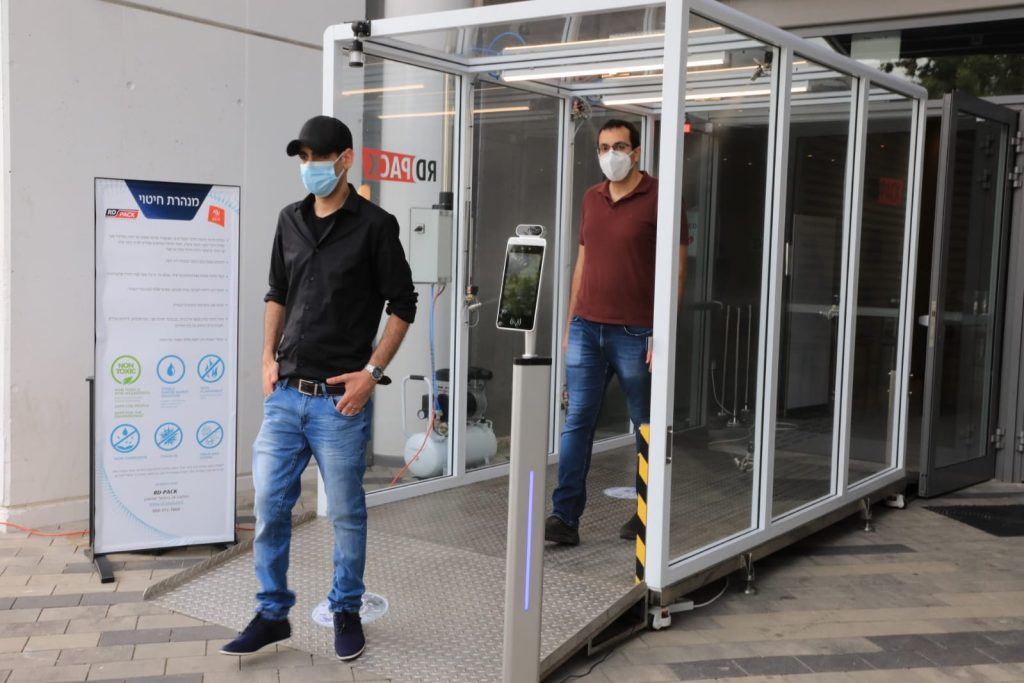
The technology works through an array of nanometer-shaped electrodes with unique surface properties where the combination of the water and electrodes creates a cleaning material with an effective anti-bacterial capability for microorganisms (bacteria, viruses, and spores).
“When you put electricity in water using the right process, this can transform the chloride and the oxygen in the water into a powerful material that can attack pathogens,” Dr. Avraham tells NoCamels on Tuesday on the sidelines of a demonstration of the technology.
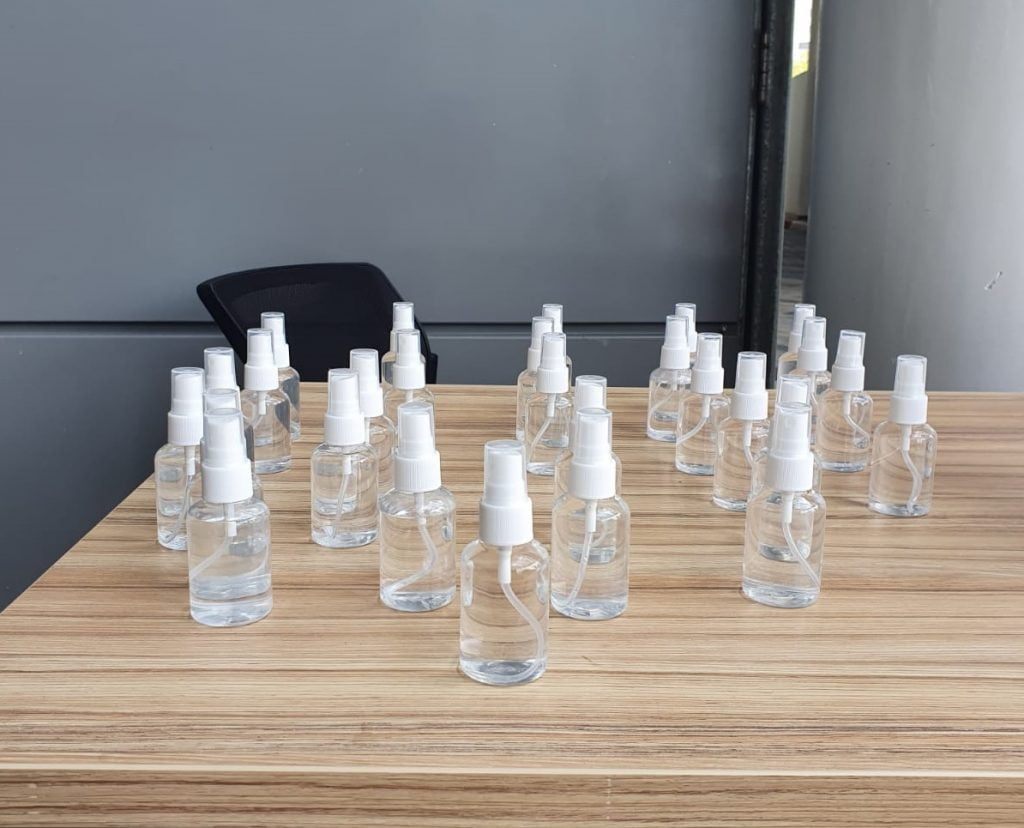
“It acts like bleach without the complications, and the big advantage here is that it’s eco-friendly and safe,” adds Dr. Avraham. He and the rest of the researchers have indicated that in fact, the solution’s antiseptic capability is “100 times more effective” than household bleach and low concentrations of between 50 and 200 mg per liter are enough to disinfect. By contrast, bleach requires between 5,000 and 20,000 mg per liter. At the same time, it is safe for macro-organisms (like skin cells) and does not contaminate groundwater.
Disinfection and sanitation are especially important in hospitals and medical clinics “where pathogens hide in spots that are not easily reachable,” Dr. Avraham says. The solution was available in small spray bottles for attendees at the event to take on Tuesday. But there are additional applications. In electrode-free containers, the disinfectants can remain effective for approximately four weeks and may be sold in recyclable bottles.
Sign up for our free weekly newsletter
SubscribeOnce bottled, the stability of the solution becomes a factor, Dr. Avraham says. After about a month, if untreated, “the solution becomes just water again. In reusable bottle products, you can simply ‘charge’ the solution. This is also a process we developed: a technology to extend the stability of the material.”
With the sanitation tunnel, the idea is to lessen the chances of the spread, he tells NoCamels. “If people are close together and someone sneezes or coughs and a droplet lands on your shirt, you have no way of knowing. But once you go through the tunnel, after just a few seconds of exposure to the disinfectant, approximately 15, the pathogen is eliminated,” he explains.
The idea for such a disinfectant came from “every life with kids,” Dr. Avraham says. Small children are notorious for touching all kinds of questionably sanitary surfaces and places random objects in their mouths, and he looked for “a solution for everyday problems.” They have been working on the tech for a number of years pre-pandemic.
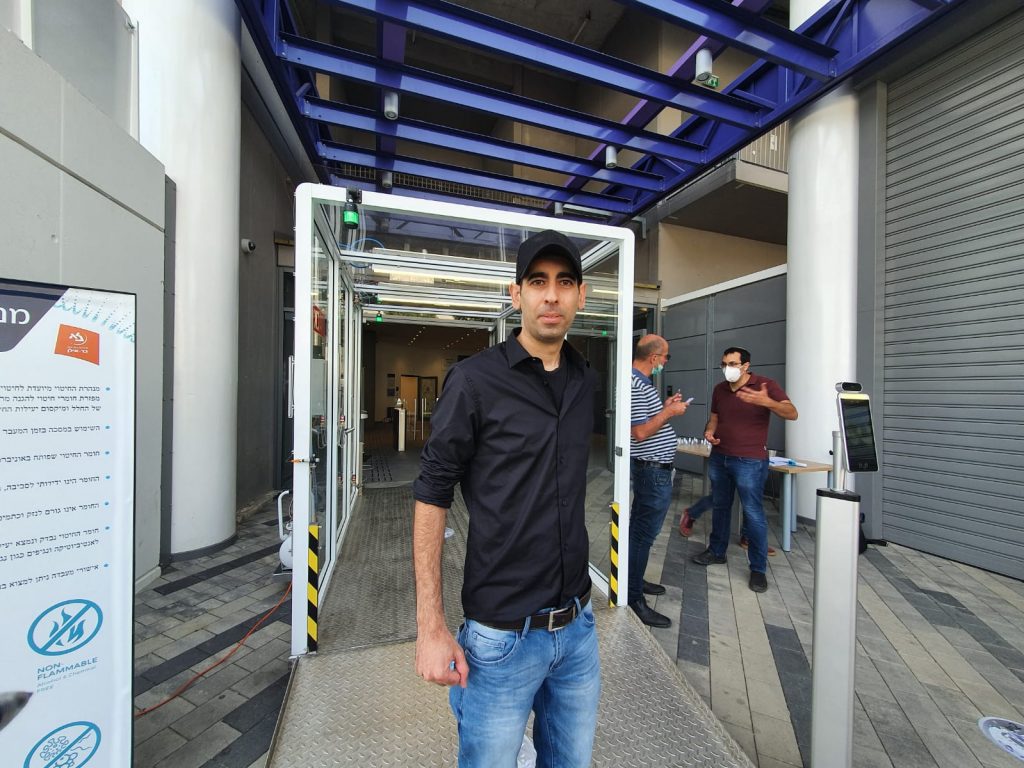
But the health crisis made the tech even more relevant and the feedback has been extremely positive, he says.
Now past the R&D stage, the researchers are looking to have the solution manufactured and distributed widely. They don’t have a proposed name for it and trust that that creative stage will come too, Dr. Avraham says.
At the same time, they understood that they needed to cooperate with a third-party to “connect with the end-user” and that is where RD Pack comes in. The company specializes in the development and construction of automatic machines for processing, packing and storing products in a wide range of industries, particularly food and pharmaceuticals.
“We were thinking of how we can help during these times and find a solution during the coronavirus,” Eran Druker, head of business development at RD Pack, tells NoCamels. “We joined up with these Bar Ilan scientists who developed this amazing product to stop the spread of cross-contamination because we understood the importance.”
Druker says the company wanted to harness the technology “to make it safe for people to get back to their normal lives.”
The solution itself is FDA-cleared, and RD pack is working to get Health Ministry approval for the sanitation tunnel. The company envisions a number of spaces that can make use of the tunnel including hospitals, schools, airports, malls, markets, and pharmacies.
Related posts

Editors’ & Readers’ Choice: 10 Favorite NoCamels Articles

Forward Facing: What Does The Future Hold For Israeli High-Tech?

Impact Innovation: Israeli Startups That Could Shape Our Future


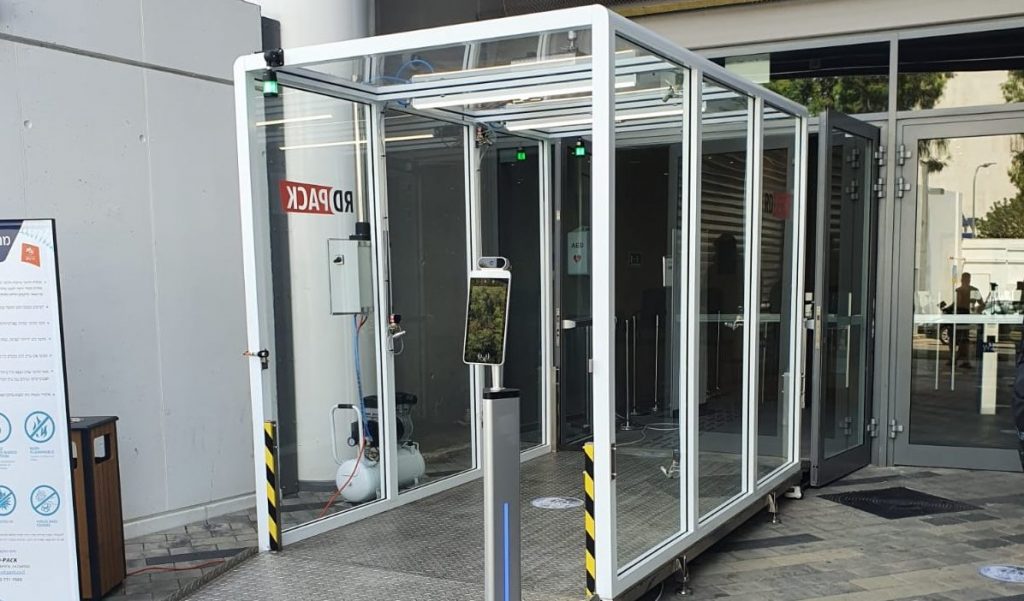
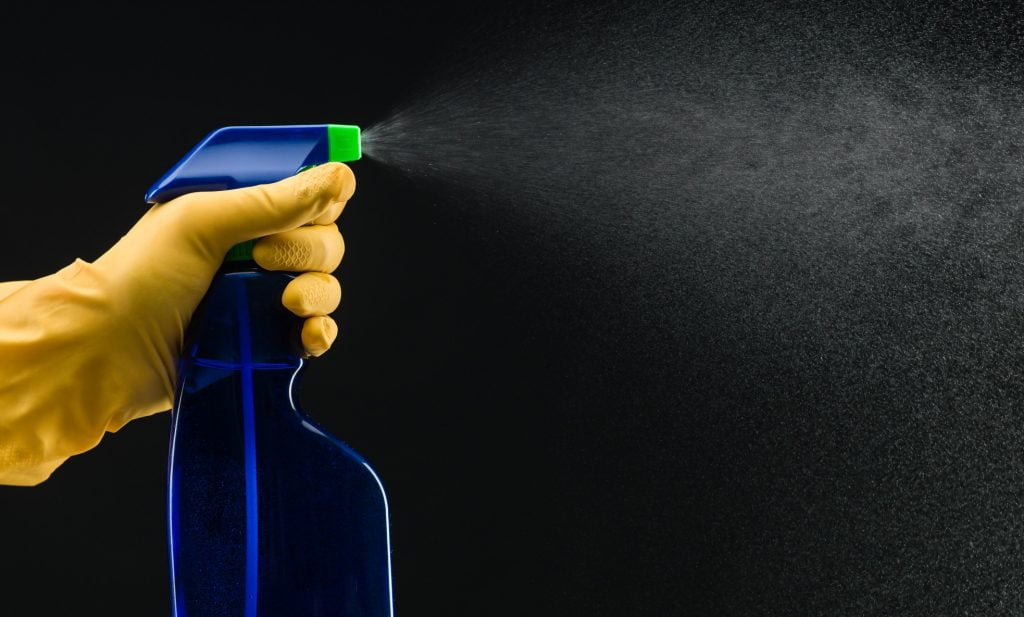
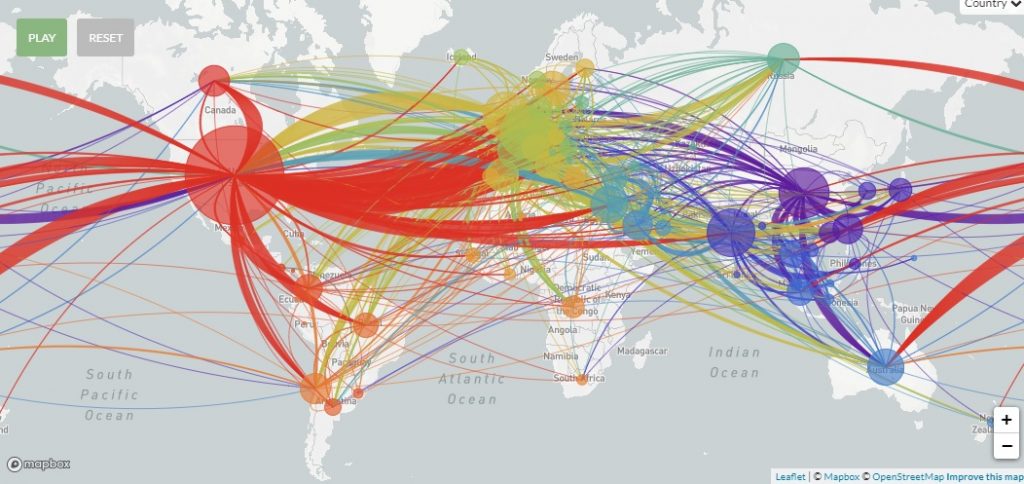

Facebook comments